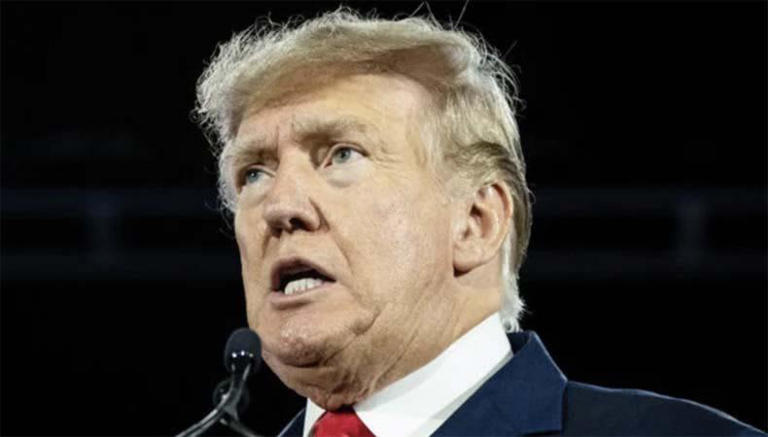Donald Trump’s recent proposal to overhaul the U.S. tax system by replacing income taxes with tariffs has sparked significant controversy and concern among economists and analysts. According to reports, Trump suggested abolishing the current progressive income tax structure, where higher earners pay a larger percentage of their income in taxes, and replacing it with a system solely funded by tariffs on imported goods.
This “unfathomably radical” idea, as described by MSNBC’s Zeeshan Aleem, would entail the complete elimination of income taxes, relying instead on tariffs imposed on foreign products entering the United States. Economists have strongly criticized this proposal, warning of catastrophic consequences for both the economy and everyday Americans.
Adam Hersh, an economist, pointed out that to compensate for the approximately $4.2 trillion in revenue currently generated by income taxes, tariffs would need to be set at exorbitantly high rates—potentially reaching 120% to 130% on imported goods. Such steep tariffs would effectively translate into a massive additional sales tax on consumer goods, significantly driving up prices for American consumers.
Moreover, Hersh cautioned that these tariffs could escalate further if consumers opt to avoid expensive imported goods, leading to a shortfall in government revenue. To cover this deficit, domestic sales taxes might also need to increase, compounding the financial burden on average Americans.
Critics argue that Trump’s proposal reflects a fundamental misunderstanding of economic principles, viewing global trade as a zero-sum game where tariffs can be used to create winners and losers. They assert that such a policy shift would not only devastate household finances but also disrupt the global economy, potentially triggering trade disputes and retaliation from other countries.
Furthermore, the proposal has been framed as a populist rhetoric that could paradoxically benefit the wealthy while harming ordinary Americans. By eliminating income taxes, which are primarily shouldered by higher earners, and shifting to tariffs that disproportionately impact lower-income households through higher consumer prices, the proposal has been denounced as advancing plutocratic interests under the guise of populism.
Overall, Trump’s suggestion to overhaul the tax system by eliminating income taxes in favor of tariffs has sparked intense debate, with critics warning of dire economic consequences and heightened financial strain on American households. As discussions unfold, the feasibility and potential impacts of such a radical tax policy change remain subject to intense scrutiny and skepticism from economists and policymakers alike.
